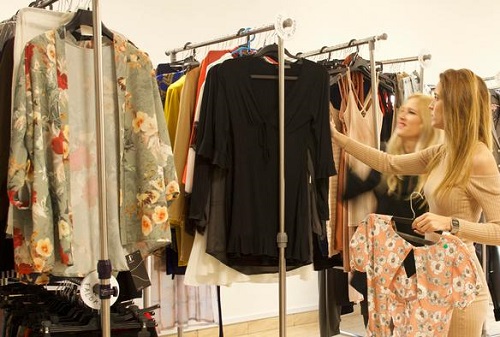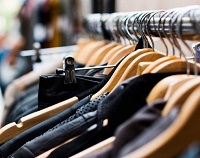 Shifts in political, cultural and financial situations across the world due to the outbreak of COVID-19 is forcing the fashion sector to now focus away from niche areas of corporate social responsibility teams and sustainability experts to climate crisis. In place of the old doctrine of shareholder primacy, the sector is now lobbying for a new form of “stakeholder capitalism” that requires companies to consider the interests of employees, suppliers, local communities and the planet, alongside making money for investors.
Shifts in political, cultural and financial situations across the world due to the outbreak of COVID-19 is forcing the fashion sector to now focus away from niche areas of corporate social responsibility teams and sustainability experts to climate crisis. In place of the old doctrine of shareholder primacy, the sector is now lobbying for a new form of “stakeholder capitalism” that requires companies to consider the interests of employees, suppliers, local communities and the planet, alongside making money for investors.
This new, friendly version of capitalism focuses on purpose of the business. Proponents off this theory believe that any short-term losses they incur now will pay dividends in the future as it will give companies long-term license to operate in an increasingly aware socio-political climate and embed resilience against systemic shocks into corporate strategies.
A report by the Business of Fashion and McKinsey & Company, ‘Coronavirus Update to the State of Fashion 2020’ opines the pandemic will reemphasise values around sustainability by intensifying discussions and further polarising views around materialism, over-consumption and irresponsible business practices.
sustainability by intensifying discussions and further polarising views around materialism, over-consumption and irresponsible business practices.
Focus on responsible business
The Business of Fashion report stated, at the heart of any responsible business is integration of protection of air, water and the land into the business' thinking. Responsible business practices evolve with technological innovations and cultural perceptions. Historically, they have often been limited to piecemeal CSR initiatives that are not embedded into businesses’ overall strategies.
The United Nations has laid out 10 principles of corporate sustainability in its global compact states over 3,000 companies can be certified as B corporations. Within the fashion world, brands like Patagonia, Allbirds and Eileen Fisher have gained the certification. And yet the fashion industry remains addicted to sales growth that sits uncomfortably alongside climate goals. Many companies continue to operate business as usual while touting “sustainable” collections or plans to eradicate virgin polyester, and doing little to address social issues within the supply chain.
Supply chain inequities exposed
COVID-19 has also laid bare the inequities within fashion’s supply chain that leave millions of vulnerable garment workers at risk of destitution and disease. Companies are also being held publicly accountable for their strategic decisions. Brands failing to address these issues are facing scandal, reputational damage and lost consumer confidence.
Despite these challenges, the industry has also been instrumental in lifting millions out of poverty and driving growth in economies like China, India and Bangladesh. And there are signs of progress, even amidst the current criticism, with some companies committing to support their manufacturers and protect employees
Cutting waste
While COVID-19 has forced the industry to face some of its structural inequalities, brands are being tempted to shift focus away from costly initiatives. To be compatible with global climate goals, the industry needs to drastically reduce emissions and cut back the waste it generates. Companies need to put resources into understanding their supply chains down to the raw material level and into transitioning to less extractive modes of operating. Arms-length sourcing practices need to shift to a point where companies are supporting regenerative models of agriculture that sequester carbon and protect biodiversity. Brands need to find solutions to ensure old clothes don’t end up in landfill or incinerated, and find ways to continue to drive profitable growth while producing less.
A tricky business
But balancing demands in a troubled retail climate is increasingly tricky and nuanced. Many businesses have been forced to make painful choices to lay off workers and cut back operations simply to survive.
Even before the current crisis hit, many brands were vague about their spending plans. Hence, analysts see the current crisis as a rare opportunity for radical change.
Building a responsible business
The first step is a reset in corporate culture. Top executives need to shift their mindset away from a profit-first model. Resilient business strategies need to focus on a more holistic approach to success that takes into account positive impact on people and planet as well as financial gain. Executive remuneration should be tied to delivery on environmental and social targets and putting in place mechanisms to ensure those goals are given adequate weight in strategic decision making.
Fixing supply chain issues
For years, a major barrier to fixing many of the social and environmental issues within the fashion industry have been its sprawling and convoluted supply chains that enable abuses and leave businesses ignorant of the extent of their impact. That needs to change. Companies need to monitor and measure their social and environmental impact in the same way they do their financial performance in order to ensure accountability and progress.
Meanwhile, the tools to understand and monitor labour practices have also often proved to be inadequate in a world of distant and sprawling supply chains. Most companies rely on third-party audits to ensure codes of conduct are being upheld within their supply base, but these have frequently failed to identify and prevent abuses.
Fixing such problems requires investment as less damaging materials are often more expensive. Technological innovations to enable the industry to move towards a more circular model require investment to develop and scale. Manufacturers need financial support to shift away from fossil fuels and towards renewables and energy-efficient technologies. Similarly, ensuring that wages are sufficient throughout the supply chain inevitably means spending more on salaries.
Any real change also requires much greater engagement with governments because brands cannot achieve their goals to operate more responsibly without systemic shifts. No individual brand can ensure workers in its supply chain are getting a fair wage if all its competitors continue to undercut it. Similarly, reducing emissions across manufacturers will require a wholesale shift to cleaner energy that will likely need government support to facilitate.
Collaboration is a relatively new concept that is gaining traction in the industry. Over the last few years, initiatives like the UN Fashion Industry Charter for Climate Action and the Fashion Pact have drawn in dozens of brands to collaborate on efforts to reduce the industry’s environmental impact. While both groups’ plans remain somewhat hazy, they provide the industry with a platform though.
Meanwhile the crisis caused by COVID-19 has created an opportunity to bring together stakeholders to address some of fashion’s social issues. Trade union groups have worked with the UN’s International Labour Organisation to issue a call to action for the industry to protect workers from the immediate fallout from the pandemic and establish sustainable systems of social protection for the long-term.
Companies that want to operate responsibly also need to embrace new business models and abandon established systems. The industry is facing a reckoning. Industry watchers have complained of a broken system for years, but Covid-19 has irrevocably exposed the long-standing weaknesses in the sector’s standard business model.
There is no perfect solution. Many may be tempted to return to business as usual in pursuit of a near-term recovery. But the world is changing and brands that start to factor environmental and social considerations into their business strategies now will likely be better-placed to weather future crisis.












